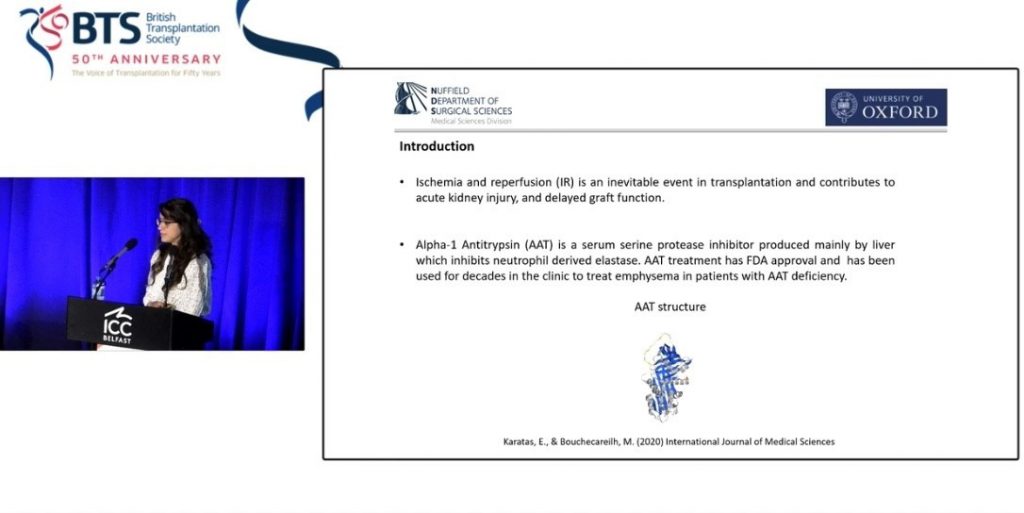The British Transplantation Society (BTS) annual congress was held in Harrogate, UK from 6th to 8th March 2024. Additionally, on Tuesday 5th March, before the official start of the congress, there was a post-graduate masterclass that featured a set of very interesting talks around sustainability and organ offering for transplantation. The congress was focused on sustainability and resource management in transplantation, this was emphasized by the choice of plenary discussions and talks showcased throughout the 3 days.

Our group submitted a number of abstracts on our work using QUOD samples, which investigate multiple transplant related questions, and we were delighted to be invited to present in multiple oral sessions. Dr Sarah Cross presented an update on QUOD and highlighted some of the research studies that the biobank has supported in the Basic Science session ‘Combatting Ageing’ which was co-moderated by Dr Maria Kaisar. Later in the congress, Dr Ioannis Michelakis presented “Donor Cystatin-C association with posttransplant graft function” in the main auditorium in the ‘Clinical Oral Presentations’ session. Dr Sarah Fawaz presented “Circulating TNFα, TNFR1 and TNFR2 Levels in deceased donors negatively associate with posttransplant kidney function” in the ‘Basic & Translational Science Oral Presentations’ session. All of which stimulated very engaging and interesting discussions.
I was honoured to have my abstract, “Oxygenated hypothermic machine perfusion (HMPO2) of the pancreas; comparing a ‘continuous’ and an ‘end-ischaemic’ approach in a porcine circulatory death model,” invited to be presented at the prestigious ‘7 of the best’ session. This was the result of a challenging set of experiments which have now paved the way to ongoing work supported by the QUOD whole organ research initiative.
The congress hosted a delightful drinks reception at the end of the first day and later on a vibrant themed gala dinner celebrating World Book Day. Throughout the event, networking was easy and engaging around the many industry and partner booths, including the QUOD booth staffed by Dr Sarah Cross and Philippa Wren. Overall, the congress was a great success, with excellent talks covering a wide range of multi-disciplinary interesting topics under the guise of transplantation.









